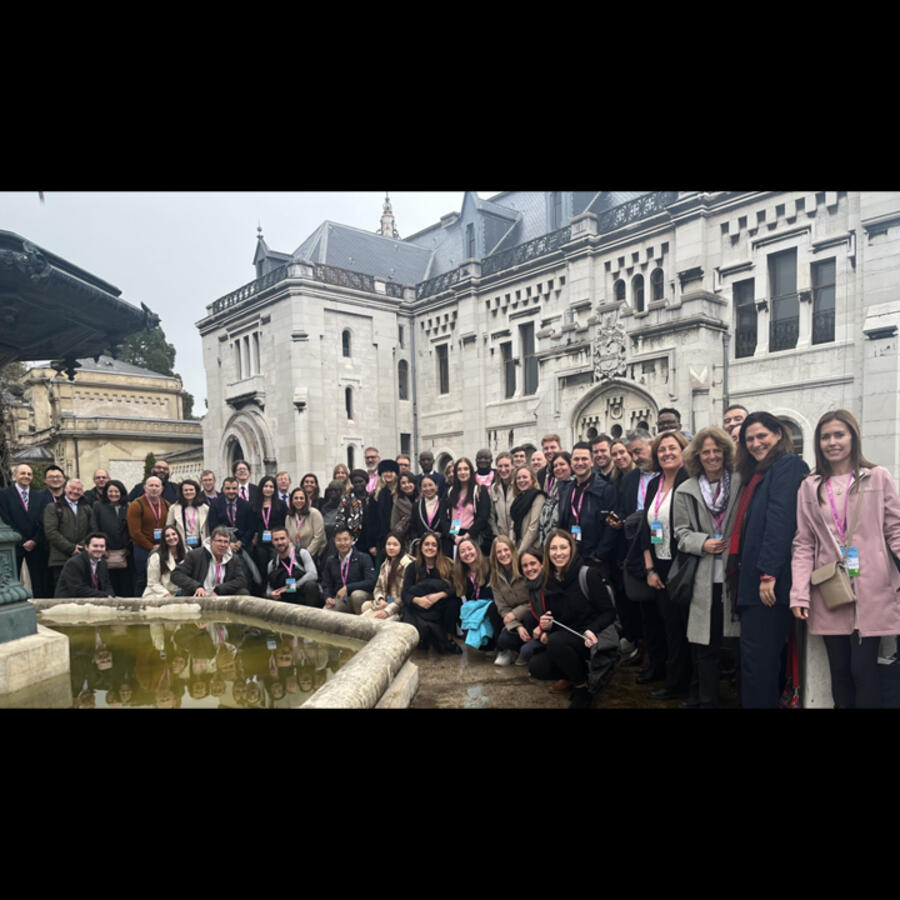Releases
WADA hosts 2024 Social Science Research Symposium in France

Yesterday, the World Anti-Doping Agency hosted a Social Science Research (SSR) Symposium at l’Université Côte d’Azur in Nice, France.
Run in connection with WADA’s 2024 Global Education Conference being held this week in Cannes, the SSR Symposium was attended by more than 50 participants from the anti-doping SSR community, representing some 30 countries.
Under the theme ‘Cultivating Our Collective Creativity… Through Research’, the SSR Symposium’s objectives centered around:
-
Bridging the gap between research and practice/policy through knowledge exchange;
-
Building a research community involving academics, practitioners, and policy-makers; and
-
Exploring ways to work more effectively and in partnership, to support athletes and protect clean sport.
WADA Social Science Research Expert Advisory Group Chair, Thierry Zintz, said: “WADA’s Social Science Research Expert Advisory Group would like to thank l’Université Côte d’Azur for graciously hosting the SSR Symposium. Social science research plays an important role in the modern anti-doping system, and this Symposium offers an opportunity to elevate the role of social science research while demonstrating the value it adds in informing policy and effectively putting those policies into practice.”
The timing of this SSR Symposium is in line with the development of WADA’s 2025-2029 Social Science Research Strategy, which will build from the current edition that concludes at the end of this year.
WADA’s Head of Research and Policy, Tony Cunningham said: “This year’s Social Science Research Symposium is a stepping stone towards a promising future for this area of anti-doping. Slowly but surely, events like this Symposium are strengthening the international social science research community. The growth of social science research allows us to better inform international anti-doping strategies, identify key research priorities, and continue to expand the research community that will support anti-doping organizations worldwide.”
By providing an opportunity for researchers from different disciplines to connect and network in person, the Symposium also served as a mechanism to enable conversations between researchers and practitioners from the anti-doping community, which helps to inform potential future research collaborations.
WADA’s SSR Expert Advisory Group held its annual in-person meeting prior to the event to discuss funding recommendations for WADA’s 2024 SSR Grant Program, which will be presented to WADA’s Executive Committee for approval in March. In addition, members of the WADA-led SSR Collaboration Platform, an informal community of practice for international organizations that fund or support SSR in sport integrity matters, are also attending the Symposium.
Mr. Cunningham added: “Having so many Social Science Research experts gathered in one place has been very rewarding. We have taken input on our potential future research priorities and discussed ways to increase, and perhaps one day match, the funding made available for natural science research. The importance of SSR in protecting clean sport is undervalued and the research community is passionate about changing that.
“This year's Symposium hosted participants from every continent, with the event receiving more registrations than could be accepted. WADA will review the success of the event and will consider hosting the Symposium again in the coming years.”
Following the official welcome and opening remarks, participants took part in sessions that focused on effective collaboration between researchers and practitioners. They explored ways of working internationally across multiple anti-doping disciplines, how to meaningfully engage athletes as partners and future social science research priorities for clean sport.
For more information about WADA’s role and investment in SSR, please refer to WADA’s Social Science Research webpage, which features more information on the Agency’s SSR Strategy, its grant funded research projects and the SSR Collaboration Platform.

